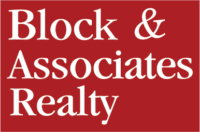Navigating HOA Rules: A Guide to Deciphering Bylaws & CC&Rs

When it comes to enforcing the rules of your community, two terms that often get used interchangeably are the homeowners’ association (HOA) bylaws and CC&Rs.
However, these two concepts are different, and community managers need to be familiar with each so they can keep their neighborhoods running smoothly.
Below, the HOA management experts at Block & Associates explain the key differences between HOA bylaws and CC&Rs so community managers can better understand how their organizations should operate.
What Are HOA Bylaws?
One of the main components of any HOA is its bylaws, which are the rules that dictate how an HOA should run.
An HOA is considered a corporation (usually classified as a nonprofit organization), requiring bylaws to inform how the organization should operate. In some communities, the bylaws may be referred to as the subdivision laws.
The bylaws of an HOA are enforceable and legally binding. They typically cover:
- Board election frequency
- Board meeting frequency
- Board member duties and responsibilities
- Board member term length
- Board nomination and election procedures
- Meeting and quorum requirements
- Membership voting rights
- Number of board members permitted to serve simultaneously
What Are CC&Rs?
CC&Rs refer to the HOA’s covenants, conditions, and restrictions. These govern the rules of the community, outlining in greater detail the HOA’s obligations to its members and vice versa. In most communities, CC&Rs are referred to as the covenants.
Similar to bylaws, an HOA’s CC&Rs are legally binding and enforceable. These covenants typically include things like:
- Dispute resolution processes
- Dues and assessment obligations
- HOA maintenance obligations
- Insurance obligations
- Property owners’ maintenance obligations
- Property use restrictions
- Restrictive covenants (i.e., architectural restrictions, pet restrictions, vehicle restrictions, etc.)
- Rule enforcement procedures and penalties
In many states, covenants only last 30 years, becoming unenforceable after they expire. However, North Carolina isn’t one of these states.
There’s no specific law in North Carolina that states restrictive covenants expire after 30 years, meaning these covenants continue to be enforceable indefinitely.
Enforcing Community Rules With HOA Management Services
The HOA board is responsible for enforcing all bylaws, covenants, and rules; however, having an HOA management company by your side can help simplify enforcement within your community.
Through HOA management services, your chosen professionals can help with:
- Coordinating maintenance, landscaping, and other initiatives
- Emergency response to fire, flooding, or sewage backups
- Ensuring adherence to HOA rules by all members
- Establishing annual budgets
- And more
Why Choose Block & Associates?
If you’re a community manager and need assistance deciphering the difference between HOA bylaws and CC&Rs, Block & Associates can help. Our HOA management team has helped communities throughout North Carolina since 1996, working directly with HOAs to enforce rules and code violations and ensure their communities run smoothly.
We handle everything on your behalf, from member compliance and conflict resolution to financial management and maintenance requests.
Simplify your HOA experience by contacting Block & Associates at 919-459-6300 today to request more information about our HOA management services.
